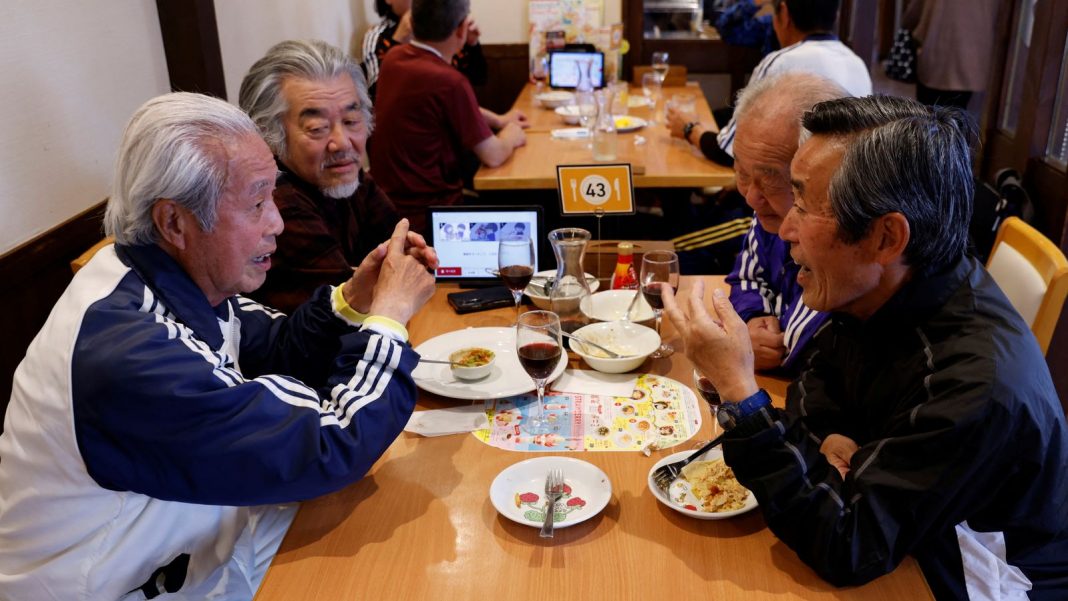More than 1 in 10 people in Japan are aged 80 or older for the first time as the country is increasingly having to deal with an aging population.
Japan’s population has been shrinking and growing older for decades as young people delay marriage and having children largely due to unstable jobs and economic difficulties.
In February, Japan’s Prime Minister Fumio Kishida warned his nation was “on the brink” of a population crisis and announced new spending to support young couples who wished to have children.
The latest population figures, which were released by the country’s internal affairs ministry, show Japan has the oldest population in the world.
The country of 124.4 million people has around 12.59 million people aged 80 or older.
Meanwhile, the number of people aged 75 or over has surpassed 20 million in the country for the first time.
The government data also shows the proportion of the population aged 65 or older (36.23 million people) has reached a record 29.1% from 29% a year ago – the highest percentage in the world.
Italy is in second place with 24.5% of its population 65 or older, while Finland is in third place with 23.6%, according to the internal affairs ministry.
The statistics are more cause for concern in a country that reported a population contraction of about 800,000 people last year, with 1.56 million deaths and 771,000 births.
It marked Japan’s 15th consecutive year of natural population decline.
The figures have also come while there are not enough young people to fill jobs in the country.
Japan is therefore relying on an elderly labour force.
More than nine million elderly people are working, accounting for 13.6%, or one in seven workers in Japan.
A quarter of all elderly people in Japan have jobs, less than South Korea’s 36.2%, but much greater than other developed countries such as the US at 18.6% or France at 3.9%.
Meanwhile, more than a third of people between 70 to 74 have jobs in Japan, the data shows.
Like many developed countries, Japan also has a state pension system with taxpayers funding payouts for people of pensionable age.
This content is provided by Datawrapper, which may be using cookies and other technologies.
To show you this content, we need your permission to use cookies.
You can use the buttons below to amend your preferences to enable Datawrapper cookies or to allow those cookies just once.
You can change your settings at any time via the Privacy Options.
Unfortunately we have been unable to verify if you have consented to Datawrapper cookies.
To view this content you can use the button below to allow Datawrapper cookies for this session only.
By 2040, Japan’s elderly population is reportedly projected to account for 34.8% of the population.
What is happening in Japan could be a sign of things to come in the UK, where the ONS has projected the share of the population aged over 60 will increase from 24% in 2019 to 29% by 2039.
Read more world news:
Spain’s women footballers say boycott remains
Experts issued warnings about Libya dams
Yoko Tsukamoto, a professor at the Health Sciences University of Hokkaido in Japan, said: “People are simply living longer, thanks largely to a good diet, healthy lifestyle choices, medicines that are constantly getting better, and the high standard of healthcare in Japan.”
The professor says the problem lies at the lower end of the age spectrum.
She said: “Governments have been trying for many years to find ways to encourage young couples to have children or larger families, but nothing seems to be working.”
“The bottom line is that it is very expensive to have children in virtually all developed countries, so this is not a problem that is unique to Japan. But it is serious.”







